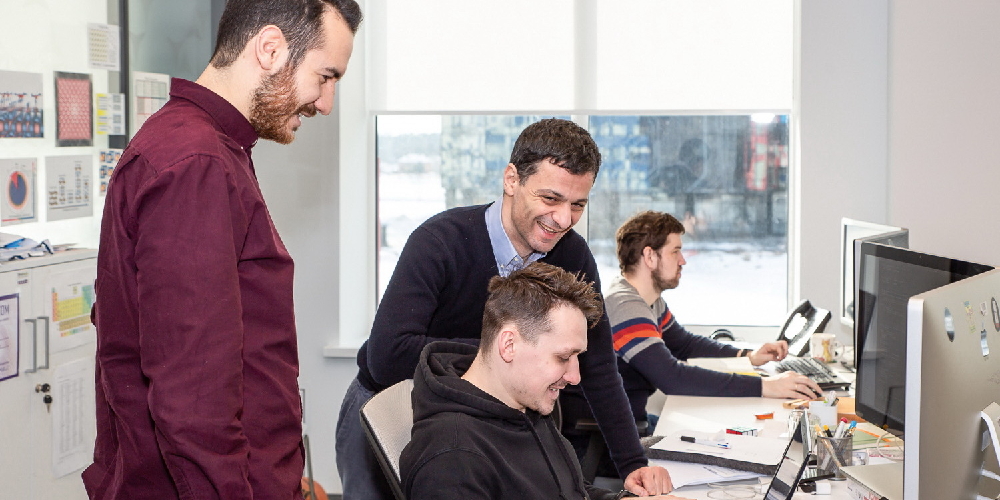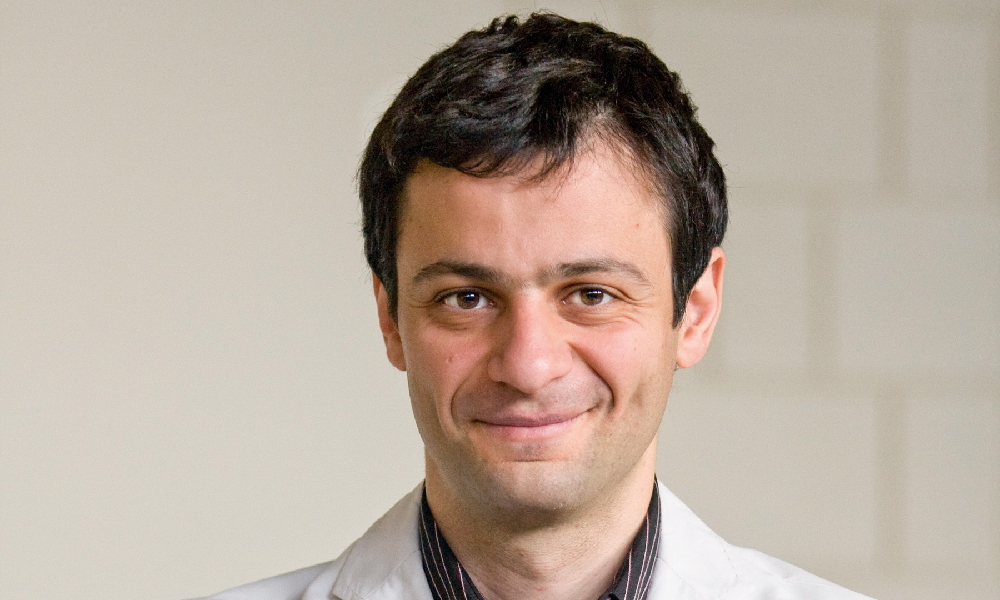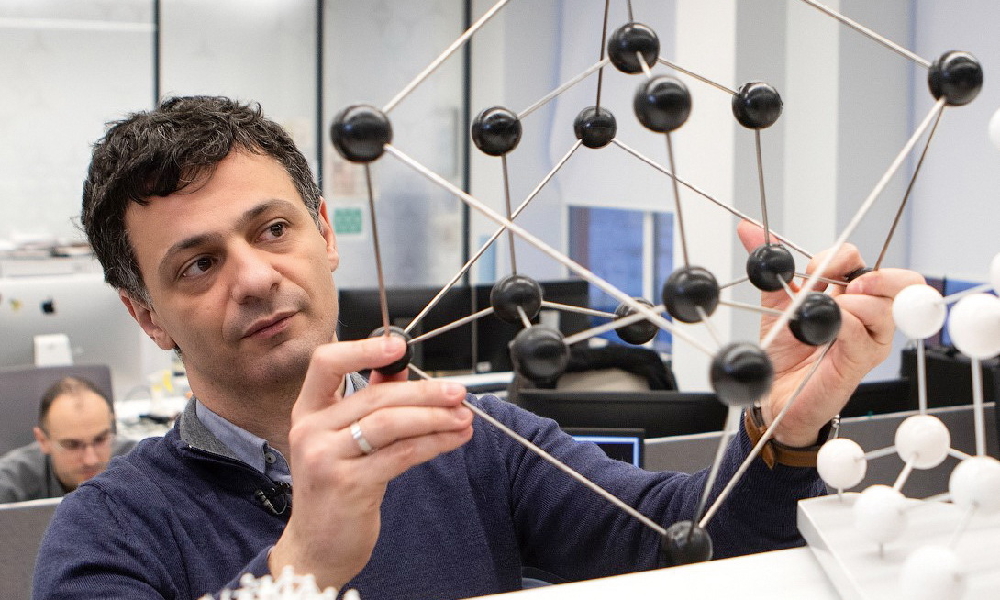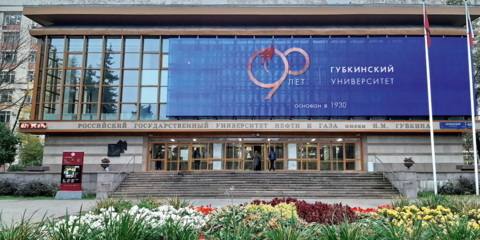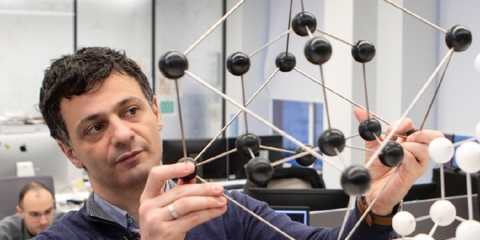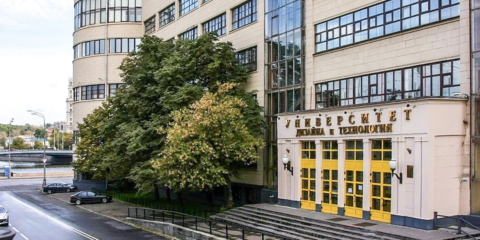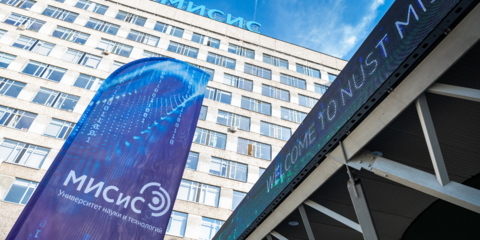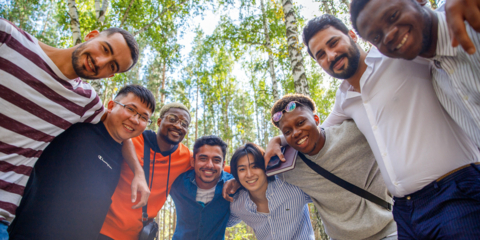In Search Of Talents
– My laboratory employs around 20 people. That's quite a few. I saw research teams consisting of 80 members, but that's too much and hardly provides benefit. I select students and employees individually and I always know exactly what's happening in the laboratory.
I am always looking for gifted people because gifted people are the most important thing in any research team. I am looking for people born to do research. I need people who are into research and have a good academic background. I employ only those who are better than me in something.
You can't just come up with an idea, put it in the air without shaping it up and testing it. You should always check and double-check your ideas and results. That's how science is made. We need all this routine.
Balancing Routine With Creativity
– Any activity, including research, has its routine. You shouldn't get stuck in it and minimize it as efficiently as possible and maximize creativity. But it's impossible to get rid of it completely.
Firstly, research activity itself has much routine: when you dig into figures, when you debug a program, fixing bugs, when you dig into experimental data, do experiments repeatedly, checking and double-checking the results. All this, of course, is routine. But your creative train of thought is absolutely senseless without it.
But there is some other routine not directly related to science — paperwork, red tape. We should minimize such things. The work related to checking your results, additional experiments and calculations must not be minimized. But paperwork can and should be kept to a minimum.
Let's see how my laboratory works. When I need to apply for a grant and then write a grant report (it's necessary since grant financing of a research laboratory is an integral element all over the world), I only write a scientific part. Financial and administrative papers are filled out by specially employed people. I don't waste my time on that. But I partly delegate a scientific part quite often as well. There are times when I write the entire research project alone, but sometimes I ask each of my employees to write a couple of pages. Then I compile all the texts into a well-composed overall text, adding my texts.
Homecoming
– People somehow think that it's fine to go one way, to the West, and that it's strange to go to Russia. But it's fine to go to Russia, too. Scientists go to place where they can unleash their full potential and provide as much benefit as possible.
At a certain point, I realized that I had achieved everything I could in the USA. I became a tenured Full Professor, I had a large laboratory, the largest one at the faculty and one of the largest at the university. And, to be honest, I felt a little bored when I realized that my further development would be rather slow. I had to do most of the paperwork myself, though I delegated everything I could to the administrators and secretaries. But the amount of paperwork was huge. One day I calculated that I had filed 20 applications for grants in one year. Then I felt that I was turning into a grant-writing machine. That's fine for an American professor, but that does immense harm to US science.
And I realized that I didn't want to be a grant-writing machine. Having obtained a lot of million-dollar grants, I proved to myself and everybody that I was successful within the system. At a certain point, I realized that almost all my applications were winning ones. That didn't satisfy me anymore. And further staying in this system was a little boring. That's on the one hand.
On the other hand, America is not my country. Russia is my country. I said to myself long ago that, all other things being equal, if I were able to do research in Russia at the same level and ensure the USA-like living standards for my family and myself, I would come back for sure. And, when such an opportunity came up — the mega grant and professorship at Skoltech — I was happy and took advantage of these opportunities.
I was happy in the West, but one day I realized that my home is in Russia. I'll have no other home. Imagine that you live in someone else's house, and this house is beautiful, clean, and well-kept. But there is your own house nearby, across the road. The plaster is flaking off, the roof is broken through, the windows are broken — but you don't live in it and don't keep it properly. You keep other people's house, and it sparkles, and your house is deteriorating, but why? It's understandable when you are not allowed to do anything in your house. Yes, such things happen, and not only in Russia. There are Americans who leave the USA because there they don't have any opportunity to do something for their country. And they live somewhere in another country all their life. That does happen sometimes. People can fulfill themselves incompletely in any country. But if you are offered an opportunity to make your home cozy, you must take this opportunity. You are a full-fledged member of society only at home, and you don't culturally diverge from society in any way. All these reasons made me return. Now it's possible to pursue science in Russia to the same high standard as in the West. That's enough for me. And what is more, it's my home.
Promising Areas Of Science
– I believe life sciences, artificial intelligence, and materials science to be the fastest evolving areas of science today. I was lucky to work at the intersection of two of these areas — artificial intelligence and materials science.
Russia has great prospects for the development of these areas. We have many talented young people, many first-rate scientists of all ages, a good framework for the development of science. The situation can't be called an ideal one, there are many problems, but I can see some dynamic improvements. There are some research centers and areas in Russia where cutting-edge science is made. Russia is an absolute leader in this science. The number of such research centers and areas is gradually increasing.
10.09.2021
